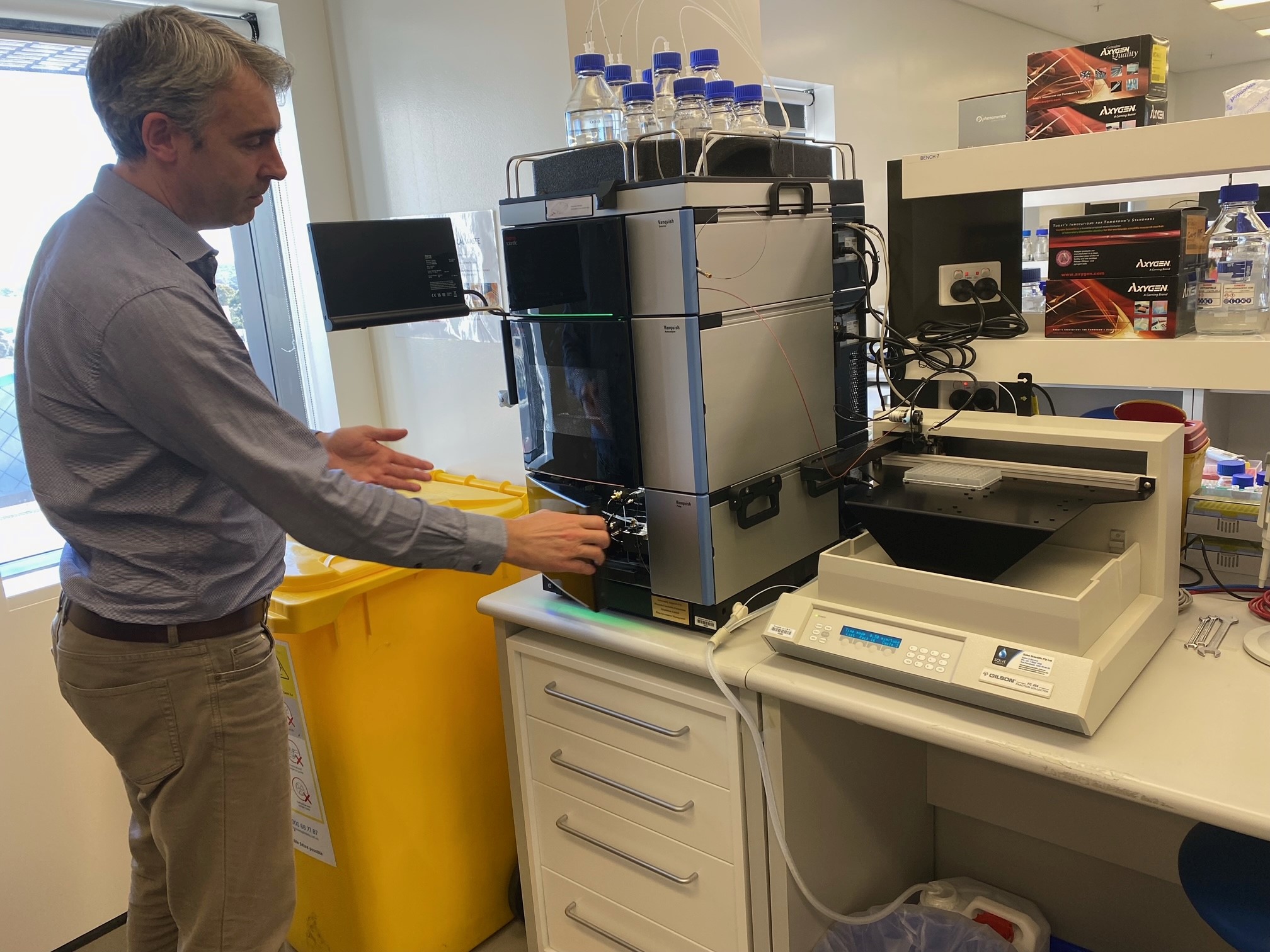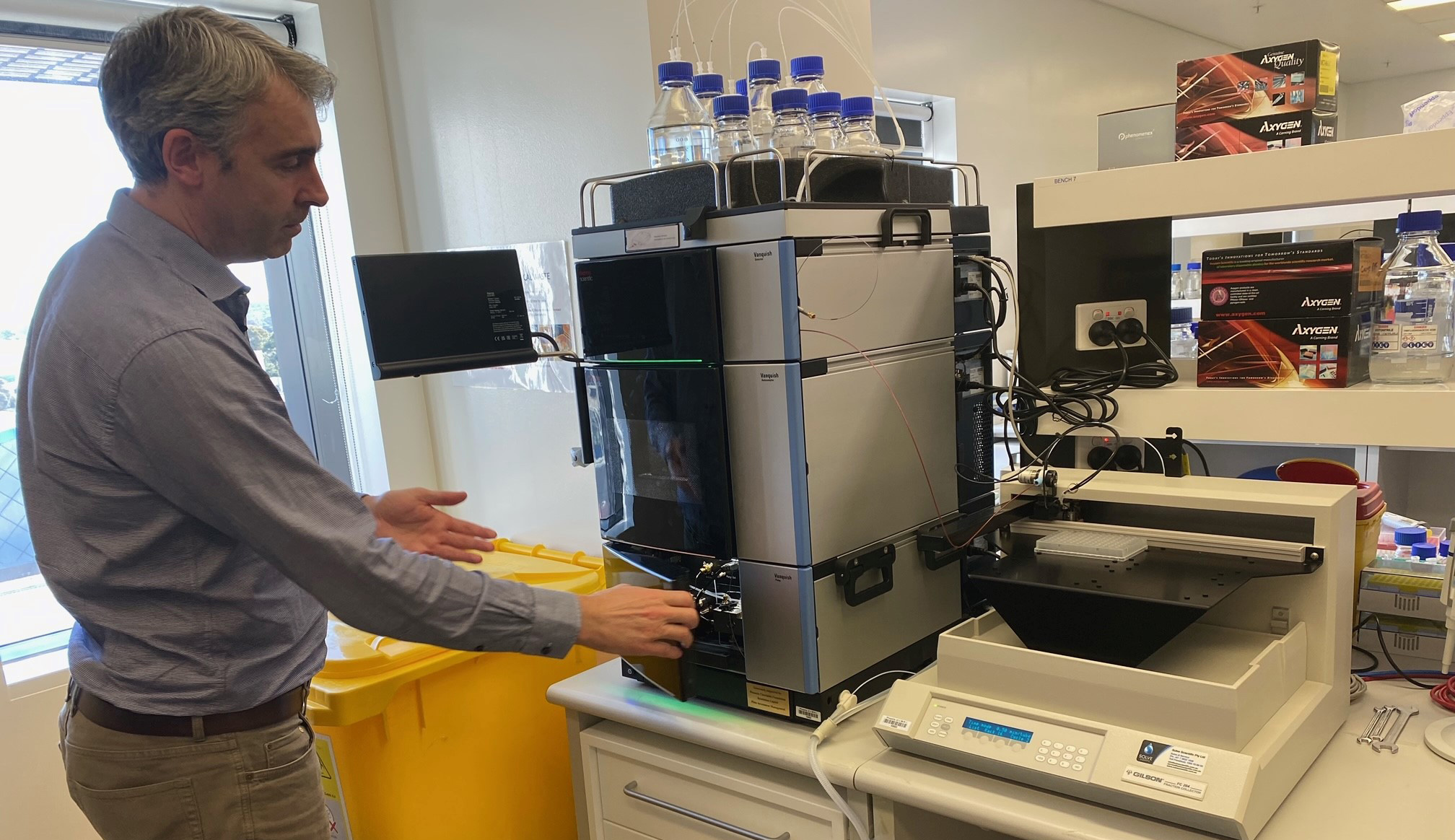DECEMBER 2023
Spotlight on Specialised Medical Research

The Foundation and Affiliates support two not-for-profit partners working in the specialised medical research field – Australian Alzheimer’s Research Foundation (AARF) and Children’s Medical Research Institute (CMRI).
Earlier in the year, representatives from the Foundation, Resolution Capital and Plato, were fortunate to visit the facilities at CMRI in Westmead and in particular the piece of equipment that was jointly funded in FY23. Todd Kennedy from Plato provided this reflection:
The specific hardware we jointly funded is a HPLC (High-performance liquid chromatography) device which replaced a 10-year-old machine. The new machine runs a 1500 atmospheres pressure driven separation column and lines and has a robotic automated sampling feature, pumps at the bottom, and is used to separate ~500,000 protein fragments down into smaller group of 20,000 that will then go on to be identified individually by a mass spectrometer.
It’s main advantage over the older machine is that it is faster, can do a greater range of work, and aid the efficiency of the protein fragment separation stage of the chain of procedures involved in identifying the proteins causing cancer or other genetic abnormalities. Amazingly, since the human genome is mapped, they can re-piece the proteins together virtually via software and match them to the DNA that would have produced them, hence the gene therapy application.
Some of the research being conducted at CMRI is very long-term. Recently, their work has resulted in targeted gene treatments that are in use now and some on the government back PBS scheme, so the blue sky research of past years has converted to mainstream treatments. They believe they have developed a near template for analysing genetic diseases and developing targeted gene therapy cures.
Vital research into Alzheimer’s is also funded by the Foundation, in conjunction with Resolution Capital and Spheria. The partnership supports research into the AARF blood bio-marker project, which aims to develop a simple low-cost blood test for the early identification of people at risk of developing Alzheimer’s disease, well before symptoms appear. A much earlier diagnosis provides the opportunity for potential new treatments and risk reduction interventions to be commenced well before significant damage has been done to the brain.
During the year, leading AARF researcher Professor Ralph Martins gave a presentation to the Foundation directors as well as representatives from Resolution Capital and Spheria, outlining the blood biomarker program and progress towards development of a blood test.
In addition to using their own large data sets, Professor Martins has formed an international collaboration to access blood samples from the largest known Early Onset Familial Alzheimer’s Disease (EOFAD) cohort (more than 5000 individuals) in the world, to measure specific blood biomarkers (GFAP and NFL) that the team have shown great potential in diagnosing in cognitively unimpaired individuals within the preclinical AD stage.
Work also continues to progress the generation of an in-house assay (test) to measure GFAP plasma levels [using the ultra-sensitive Single Molecular Array (Simoa) technology]. Once completed, this assay will be tested against the high-cost commercially available GFAP kit (which also uses SIMOA technology).
Upon determining the most favourable conditions for the antibody-GFAP binding in plasma, subsequent experiments will assess the ability of these antibodies to detect recombinant human GFAP in CSF (cerebral spinal fluid) and in human brain samples, to confirm that conditions are suitable for GFAP detection in several biological fluids.
Subscribe to our updates
Stay up to date with the latest news and insights from Pinnacle and Affiliates.

